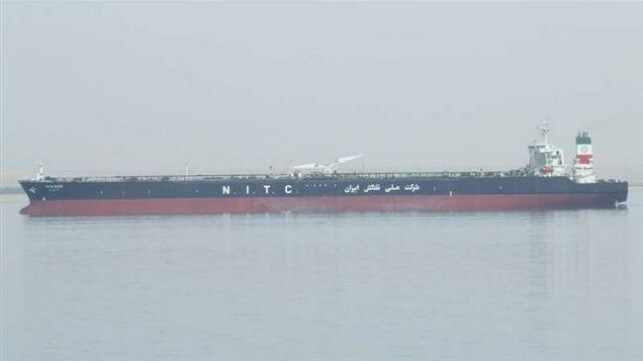UANI Calls for New Enforceme Metods as Iran’s Oil Exports G

The NGO United Against Nuclear Iran (UANI), which is at the forefront of tracking Iran’s dark tanker fleet and oil exports, is out with its year-end review citing continued dramatic growth in the dark tanker fleet supporting Iran’s oil exports. The group is calling for global cooperation and strategies that go beyond “traditional enforcement methods” in response to Iran’s ability to quickly adapt to the current sanctions and lax enforcement.
UANI details key trends and shifts in the sanction-busting oil exports in its final Tanker Tracker of 2024 while highlighting continued strong growth in the number of tankers involved in the illicit trade. The group says in November 2020 it identified 70 foreign tankers involved in the Iranian oil trade while saying it has now grown to 477 tankers. UANI says it identified 132 new vessels engaged in the trade in 2024.
The intelligence efforts they report led to 330 flag revocations as well as the U.S. designating 139 tankers in the sanctions regime. UANI says of the 139 tankers sanctioned this year, 110 were identified in its listing of the “ghost armada.” It says that 325 vessels however have yet to be designated.
Despite the efforts and in part due to lax enforcement, the group calculates that Iran’s oil exports grew by 10.75 percent to 587 million barrels. China remains the largest destination and has grown its percentage of the trade receiving 533 million barrels, which UANI highlights is up 24 percent from 2023. UANI says China accounts for 91 percent of Iran’s total oil exports up from 83 percent in 2023.
One major shift it observed is a greater reliance on Iran’s National Iranian Tanker Company (NITC) to transport the oil from Iran. In part because of the sanctions, the role of foreign-flagged vessels has shifted to ship-to-ship transfers. UANI is now calling for efforts to identify and sanction repeat offenders who have engaged in multiple transfers.
Another step UNAI calls for says that the “authorities should focus on holding captains accountable through targeted sanctions, fines, and potential legal action.” The group cites the captain’s role in sanction-avoiding techniques such as AIS manipulation, presenting false documents, and illicit ship-to-ship transfers.
They also call for a continued crackdown on “flag hopping” by tankers. They acknowledge “a notable increase in due diligence by certain flag states” in 2024. UANI noted the St. Kitts and Nevis International Ship Registry de-flagged all eight vessels identified by UANI. The group also noted a “good track record” from flag authorities including the Tanzania-Zanzibar International Register of Shipping, the Maritime Administration of Gabonese Republic, and the Tuvalu Ship Registry. UANI reports it will provide monthly updates and continue to make public its data in the Tanker Tracker while encouraging flag states to routinely check its list.
According to the group, the Iranian regime has demonstrated the ability to adapt quickly to enforcement measures. They say the efforts must go beyond traditional methods such as satellite and AIS monitoring, blockchain-based trade verification, and “name and shame” campaigns. UANI says the response must be “equally dynamic” in 2025 to have an impact on the oil trade which keeps the current Iranian regime “financially afloat” and provides the means to support proxies such as Hezbollah and Hamas.
No comments:
Post a Comment